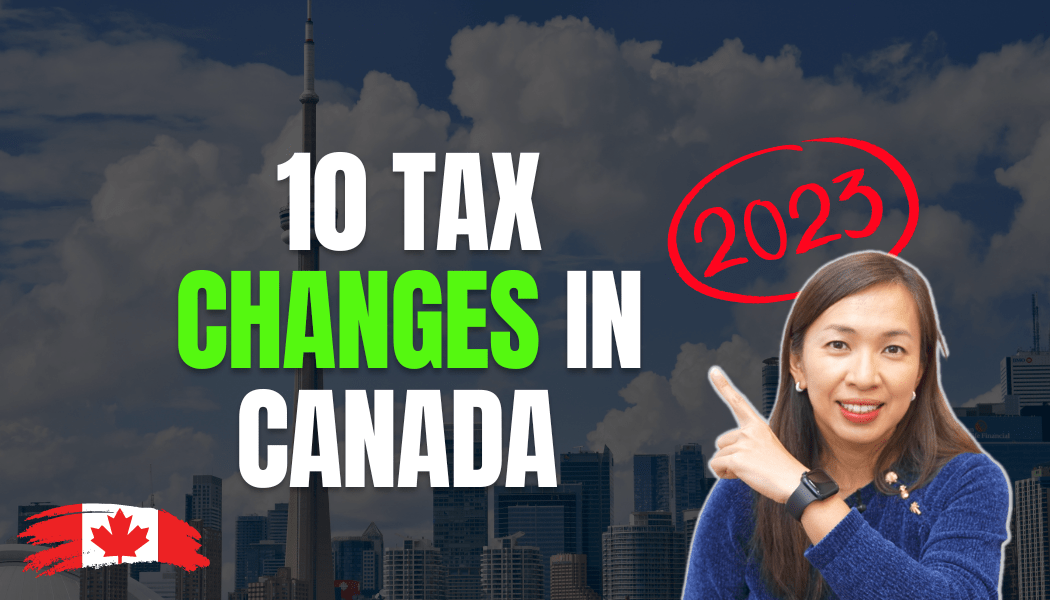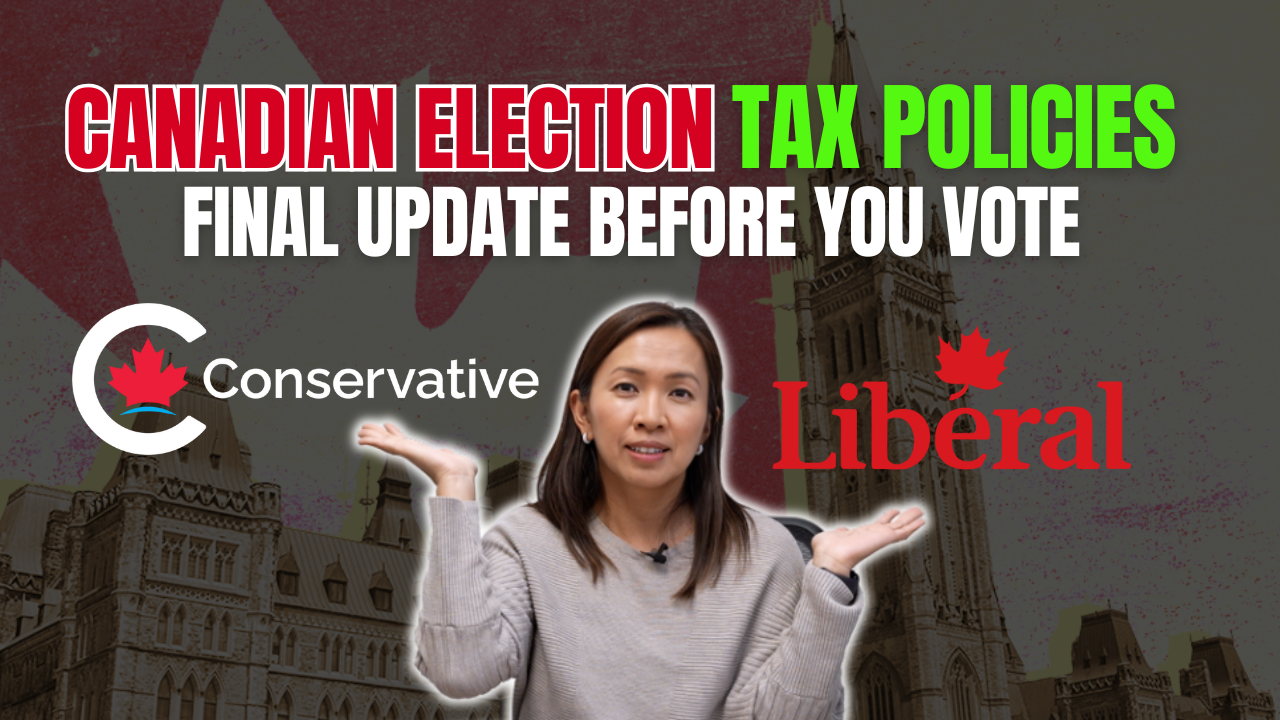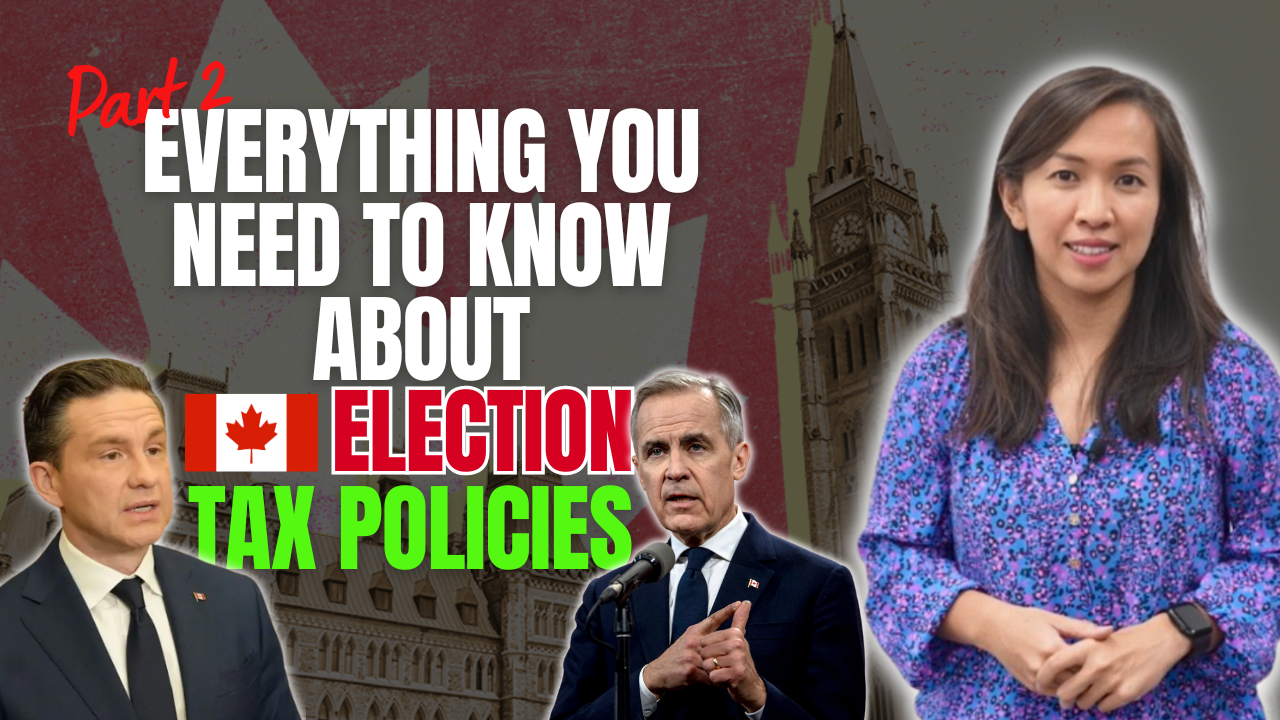Here’re some of the tax updates for 2023.
Personal income tax marginal tax rate
- Every year, personal income tax brackets are updated based on inflation. No difference in 2023.
- For someone who earns $100K in 2022 and the same $100K in 2023, you would save about $800’ish taxes. But the saving is probably not enough to offset inflation.
- The advice: grow your income faster than inflation.
RRSP contribution limit
- RRSP Contribution limit is generally calculated based on 18% of your earned income (usually your employment income) up to a maximum contribution limit. In 2023, maximum RRSP contribution limit has been increased to $30,780.
- For the small business owners who operate their businesses in a corporation, if you are interested in maxing out your RRSP contribution limit, you will need to pay yourself $171K in 2022 for maximum contribution in 2023.
CPP contribution increase
- In case you don’t know, the Canadian government has increased the CPP contribution requirement since 2018.
- In 2023, the CPP contribution required is 5.95%, increased from 5.7% in 2022.
- If you are self employed, you will have to pay double of this contribution on your annual personal tax return, a combined total of 11.9%, up to $7,402.
- If you have a small business owner and pay yourself a salary, the combine of the corporation contribution and your own contribution to your CPP is a total of 11.9%, same as self-employed as sole proprietorship. Total cost of $7,402.
- If you are an entrepreneur that does not care much about contributing to CPP, you might see CPP contribution as a cost of paying yourself salary. In that case, you might choose to pay yourself a dividend instead.
TFSA contribution limit
- TFSA contribution limit is increased to $6500 in 2023 from $6,000 in 2022.
- For those of you who have not ever contributed to your TFSA account and ASSUMING you have qualified to contribute in Canada since 2019, your cumulative contribution room is $88,000. If you are not sure what your contribution limit is, make sure your CHECK before you make contribution. We have had multiple clients being advised by the banks or financial advisors to contribute without checking if they have available contribution room. Over-contribution can cause you 1% penalty monthly on the over contribution amount. So be careful!
Automobile deduction
- If you use your vehicle to run a business, manage your portfolio or earn employment income (with your employer providing you a T2200 form specifying that you need your vehicle for employment purpose), you should be excited about this automobile deduction update.
- If you purchase your vehicle, maximum tax deduction as capital cost allowances (CCA) for Class 10.1 passenger vehicles will be increased from $34,000 to $36,000, before tax, acquired on or after January 1, 2023.
- The ceiling for CCA for Class 54 zero-emission passenger vehicles (including Tesla) will be increased from $59,000 to $61,000, new and used, acquired starting 2023 – you would only qualify for this deduction if you don’t receive any government rebate.
- If you lease your vehicle, deductible leasing costs will be increased from $900 to $950 per month, for new leases entered in 2023.
- The limit on the deduction of tax-exempt allowances paid by employers to employees who use their personal vehicle for business purposes in the provinces will increase by seven cents to 68 cents per kilometre for the first 5,000 kilometres driven, and to 62 cents for each additional kilometre.
Introduction of FHSA account
- The Federal announced the introduction of the First time Home Savings Account in Budget 2022.
- FHSA will be introduced sometime in 2023.
- FHSA is a hybrid between RRSP and TFSA. Contribution to your FHSA account is tax deductible like RRSP. Investment income can be earned within FHSA tax-free.
- Withdrawal from your FHSA account, including the investment return you earn within the plan, can be tax free, similar to that of a TFSA account, assuming you’re withdrawing it to purchase your first home.
- You can contribute up to $8K contribution plus any contribution limit from the immediate year before. You also have a lifetime contribution limit of $40,000.
- Make sure you check the qualification of FHSA account and take advantage of this tax free saving vehicle.
And there’re many more…
Watch the Youtube video below…
Until next time, happy Canadian Real Estate Investing.
Cherry Chan, CPA, CA
Your Real Estate Accountant





